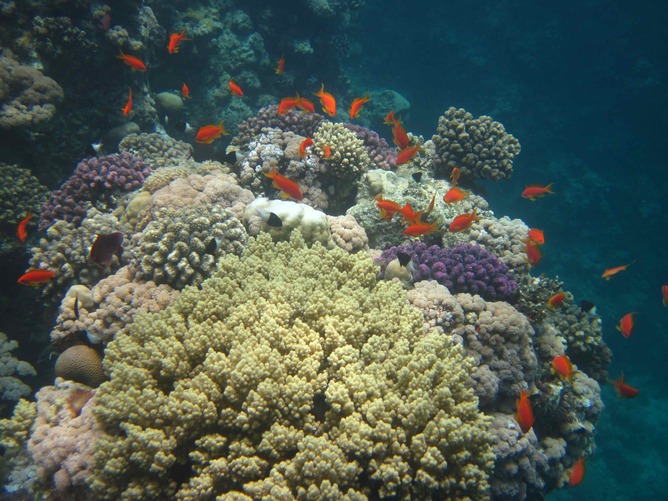By Carlos Duarte, University of Western Australia

Red Sea Coral appear particularly resistant to climate change. Carlos M. Duarte
The oceans have absorbed almost 50 % of the CO2 humans released into the atmosphere, which has driven CO2 in the oceans to rise, causing – because of the effect of increasing CO2 in producing carbonic acid – a decline in ocean pH, termed ocean acidification. Ocean acidification has been argued to threaten calcifying organisms, such as corals and planktonic calcifiers, as coccolhitophores and pteropods.
However, CO2 does not only affect pH, but also affects the efficiency of aquatic aerobic respiration, which depends on the relative partial pressures of oxygen and CO2 in the water with which the organisms are to exchange their gases. In addition, reduced pH reduces the binding affinity for oxygen in blood. As a result, increased partial pressure of CO2 reduces the efficiency of aerobic respiration of aquatic organisms and, most importantly, raises the thresholds of oxygen required to support respiration.
Although not as widely discussed as ocean acidification, the role of increased CO2 in raising the oxygen levels required to support aerobic respiration in the ocean is most important. Oxygen concentrations are declining in the ocean as CO2 levels increase, particularly in coastal waters but also in the open ocean. Ocean deoxygenation is an emerging problem, that is already expressed in mass mortality events in hypoxic coastal waters, which are growing worldwide.
Read the rest of the story on The Conversation.